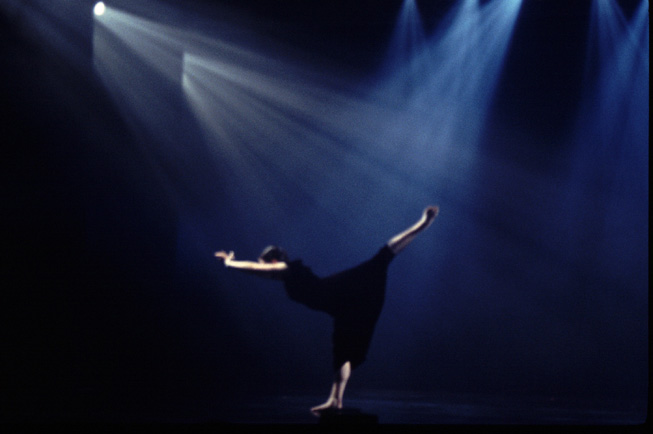 |
 |
 |
 |
 |
 |
 |
 |
 |
 |
 |
 |
|
|
|||||||||||||||
|
|
|||||||||||||||
|
|||||||||||||||
|
|
|||||||||||||||
Requirements:
The student is expected to attend all classes and special seminars.
Projects turned in after the due date will not be accepted unless for compelling
reasons.
Exam and project dates are subject to change.
Evaluations:
Grading is based as follows:
Project #1 “Working Man”: 10%
Project #2 “Layer Mask”: 10%
Midterm Project: 30%
Project #3 “Cloning”: 20%
Final Project: 30%
Attendance: Students are expected to attend all classes and special events.
Strict adherence to the CSULB attendance policy will be followed. If attendance
problems occur the student will be notified in writing (via email) of the ramifications
of the student’s absences. Excessive unexcused absences will result in
the student being dropped from the class or in a grade of “F” for
the class.
Computers and Digital Devices Used in Class: No computers or digital devices
are permitted to be used in class unless used for the sole purpose of class
assignments and instruction. If the student requires these devices for medical
and/or learning disabilities, then exceptions will be made.
Materials:
Software: Adobe Photoshop CS5
Text: Photoshop CS5 Bible
1. INTRODUCTION
Class structure – Lecture and Demonstration, Lab time, Home Tutorials
Use and availability of equipment, computer lab, etc.
Basic Photoshop CS5 hardware and software requirements
Terminology
Painting and Drawing Applications
Turning on the Computer - opening Photoshop
Understanding the Photoshop Workspace (Chapter 2)
The Photoshop Desktop – Menu Bar, Image Canvas, Layers/Channels/Mask
Palettes, History Palette, Dockable Palettes, Color Palette, Adjustments and
Mask Palettes
2. GETTING AROUND PHOTOSHOP – The Desktop and Toolbox
Review toolbar
Selection tools
Navigation tools
Painting Tools
Color Tools
Mask Tools
Image/Window Tools
Layer and History Palettes
Assignment #1 - Using tools
Reading Assignment: Chapter 3
3. IMAGE BASICS (Chapter 3)
File Types - Image File Formats – Native PSD, TIFF, JPEG, Photoshop
PDF
Creating and Opening Images
Resizing Files and Adjusting Resolution - Size and resolution - Print and Screen
Resampling and Cropping Methods – Start large and make smaller, never
small to large.
Cropping and Straightening Images
Trimming a Border
Reading Assignment: Chapter 4
4. UNDERSTANDING COLORS, HISTOGRAMS, LEVELS, AND CURVES (Chapter 4)
Color Basics - Selecting and Editing Colors
Understanding Channels and Levels
Color Modes - RGB, CMYK
Adjusting With Histograms
Working in Different Color Modes
Grayscale
Choosing Colors
The Eyedropper Tool
Reading Assignment: Chapters 5
5. HISTORY AND ACTIONS (Chapter 5)
Using the History Panel
Creating and Using Automated Actions (Macros)
Assignment: Actions (Macros)
Reading Assignment: Chapter 9
6. DRAWING SELECTION OUTLINES - WORKING WITH SELECTIONS (Chapter 9)
Selection Fundamentals
The Select Menu
Using Selection Tools
Magic Wand – 9.8
Color Range – 9.9
Select by Shape
Lasso Tools - 9.16
Refining Your Selection – 9.17
Refining the Edges – Edge Detection
Using Paths – Project #1 – “Working Man”
7. SELECTIONS Cont.
Selecting via Masks
Painting and Editing inside Selections
Temporary Masking Functions
Quick Mask Mode – Complete Tutorial Pg. 283-285
Creating an Independent Mask Channel
Reading Assignment: Chapter 10
8. ALL ABOUT LAYERS (Chapter 10)
Understanding Multiple Layers and the Layers Palette – The Layer Menu
Adding New Layers
Adding Another Document to a Layer
Adding Text or Shapes as a Layer
Sending a Selection to a Layer
Selecting the Contents of Layers
Masking and Layers
Using Opacity and Blend Modes
Advanced Blending Techniques
Using Channel Operations Commands
Grouping Layers
Project #2 - Create Layer Mask and Composite Image
Adjustment Layers – 10.17A and 10.17B
Layer Styles
Creating a Separate Layer From a Layer Style – 10.22
Creating Smart Objects
Layer Masks
Type Masks – 10.30A Tutorial Pg 330-331
Editing Masks
Merging Layers
Reading Assignment: Chapter 11
9. CHANNELS (Chapter 11) – Guest Instructor
Understanding Color Channels
Using the Channel Mixer
Color Mixing
Swapping Colors
Converting Color to Grayscale
Using the Channels Panel
Selecting and Merging Channels
Making Channel Selections – Tutorial Pg 353-335
Loading Selections From Alpha Channels
Modifying Alpha Channels
Spot Color Channels
10- MIDTERM PROJECT: LAYER AND CHANNELS COMPOSITING PROJECT
11. MIDTERM PROJECT: LAYER AND CHANNELS COMPOSITING PROJECT
Reading Assignment: Chapter 13
12. LIGHTING AND COLOR ADJUSTMENTS (Chapter 13)
Applying Quick Adjustments in Light and Color
Brightness and Contrast – 13.1, Tutorial 13.2 Pg. 384-385
Changing the Color Balance – 13.4 Tutorial Pg. 387-388
Making Selective Color Adjustments – 13.7 Tutorial Pg. 390-391
Applying Photo Filter to Images
Replacing Colors
Using the Variations Tool
Changing Shadows and Highlights in Images
Hue and Saturation Tool – 13.9, 13.20 Tutorial Pg. 408-410
Levels – Using the Levels Adjustment Tool – 13.27 Tutorial Pg.
416-419
Curves – Using the Curves Adjustment Tool
Using Match Color Tool to Change Colors
Reading Assignment: Chapter 14
13. SHARPNESS, BLUR, AND NOISE ADJUSTMENTS (Chapter 14)
Sharpen Filters – 14.1 Tutorial Pg. 439-440
Unsharp Mask – 14.6 Tutorial Pg. 443-445
Smart Sharpen
Blur Filters
Reducing Noise in an Image – Median
Add Noise
Reading Assignment: Chapter 15
14. CLONING (Chapter 15)
Healing Brush – 15.4 Tutorial Pg 468-471
Patch Tool – 15.13 Tuorial 475-477
Content Aware Fill
Clone Stamp Tool – 15.23 Tutorial Pg. 483, 15.27 Tutorial Pg. 487-489
15.31 Tutorial Pg. 491-493, 15.35 Tutorial Pg. 494-496
Project #3 “Cloning”
15. PAINTING AND BRUSHES (Chapter 16)
Paint and Edit Tool Basics
Basic Techniques
Brushes – Using the Brush Panel
Opacity, Pressure, and Exposure
Tapered Lines
Brush Modes
Gradient Tool
Painting From a Blank Canvas, Tutorial Pg. 539-542
Dodges and Burn Modes
Setting color tolerances
Compositing / Landscape Assignment
FILLING AND STROKING TECHNIQUES
Filling selections with Color and Patterns
Applying Gradient Fills
Applying Strokes and Arrows
Assignment - Path/Layer/Scaling/Painting/Drop Shadow
16. WORKING WITH TEXT (Chapter 18)
Adding Text to Images
Formatting Text
Applying Layer Styles to Text
Applying Text to a Path
Controlling Text Flow
Applying Text Effects
Adding Text to a Smart Image – 18.25 Tutorial Pg 611-613
Applying Text as a Mask – 18.29 Tutorial Pg. 614-615
